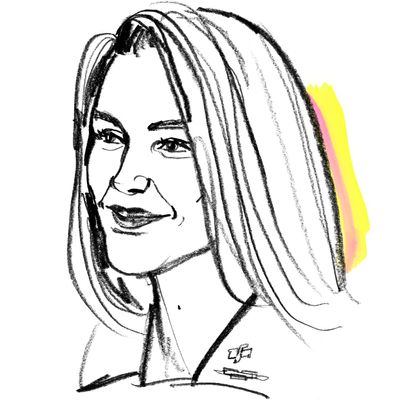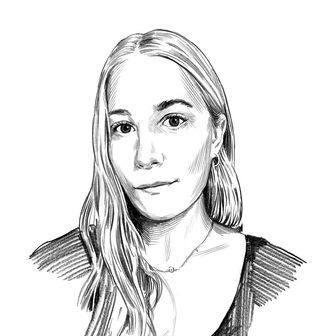
Sara Nelson is the president of the Association of Flight Attendants-CWA, the world’s largest flight-attendant union. She’s also the woman credited with helping end last year’s government shutdown when, in an emotional speech, she excoriated the Trump administration for putting air-traffic controllers, flight attendants, and others at risk and called for a general strike. The shutdown ended the next day. Nelson has worked as a flight attendant for 24 years, and, as a union leader, now represents over 50,000 people. She lives in Washington, D.C., with her husband and 10-year-old son. Here’s how she gets it done:
On her unpredictable schedule:
I’m always grabbing my phone first thing and scanning to see that nothing crazy has happened overnight. If I’m home, my husband usually says, “Are you ready for coffee?” I’m very lucky to have coffee delivered to me in bed. I travel a lot, so I’m probably only home to see my son go to school one day a week. I go to where the fights are the hottest in our union, and meet with leaders of outside groups too. Then there might be a strike that pops up. Recently, I had to be at an event in Las Vegas and I ended up stopping in Dallas, Texas so that I could be on the picket line with GM strikers. It’s an important symbolic weight to be there physically with them.
On becoming a flight attendant:
After college, I had been planning to start as a first year teacher in St. Louis. At the time, I was subbing, waiting tables, working for an insurance agency, and working in a home goods store to make ends meet. I was feeling tired and frustrated and landlocked. A friend called me from Miami, and she said I should apply to become a flight attendant. She talked about the pay, the flexibility, the healthcare, and the pension (the terms of our union contract, though she didn’t put it that way). It was all way better than first year teacher pay, so I drove to Chicago the next day to interview with United.
On learning how to organize:
The 38-month-long United Airlines bankruptcy [in which the airline defaulted on employee pensions in 2005] was a crash course in organizing. I didn’t have a degree in communications, I didn’t have a degree in media relations. I was in the union office from 7 a.m. to 1 a.m. I remember going home to my apartment in a building that included Section 8 housing in Chicago. I’d be so wound up, because of what we were working on. I would put on Friends, and a couple hours later I’d wake up sitting up still with my backpack on, on my couch. Then I’d get up and shower and go do it again. The majority of people in the office with me were women who were 20 years older, and didn’t have families because for their generation, they were largely unable to get married and keep the job, or really able to have kids. They gave their lives to the union, and made it possible for other women to have this career and be mothers and have our benefits.
On her training as an actor:
My theater director in college was Richard Morse, who was trained by Stella Adler. The first time I spoke in his public speaking class, I told a funny story, and it didn’t really have a point or didn’t leave anybody with anything. I remember him saying, “If you’re going to get up and speak to people, you better make it worth their time, and they need to be able to take something away that’s meaningful.” That absolutely stuck with me. In another acting class, he said, “Don’t walk on the stage unless you know why you’re there.” If there’s a purpose and urgency to what you’re doing, then people will be attracted to that and want to be a part of what you’re sharing.
On challenging assumptions:
One thing that I have made clear about who I am is that I will go anywhere that I’m invited. This past year I spoke at the Democratic Socialists of America and I went to the First Lady’s luncheon. I’ll go into any room, because at the end of the day, the main purpose is to bring people together in the labor movement. You can’t do that if you’re not able to have conversations with people and have people believe that you’re actually interested in what they have to say. And the only way that you can do that is by challenging assumptions about who they think you are. Someone said about me recently, “I just love her because she looks like a Republican, but she’s a socialist.” I will also tell you that there are rooms that are just very hard to get into, because there really are no women in those rooms. And that’s still an issue.
On taking time to recharge:
One of the first things flight attendants learn is to consider our own needs first. When there’s a drop in cabin pressure on the plane, we are supposed to sit down, hold on and put the nearest mask on our face. That is a metaphor that I think about a lot and I think that it’s very hard, especially for women, to do. There have been times when I have gone so hard and so long, I literally can’t think anymore. I like to recharge by spending a few hours going to the ice skating rink with my son, or going on a hike with him, or going to a movie. Once in a while, I go get a facial. People expect me to look put together, so having a facial every so often doesn’t hurt.


